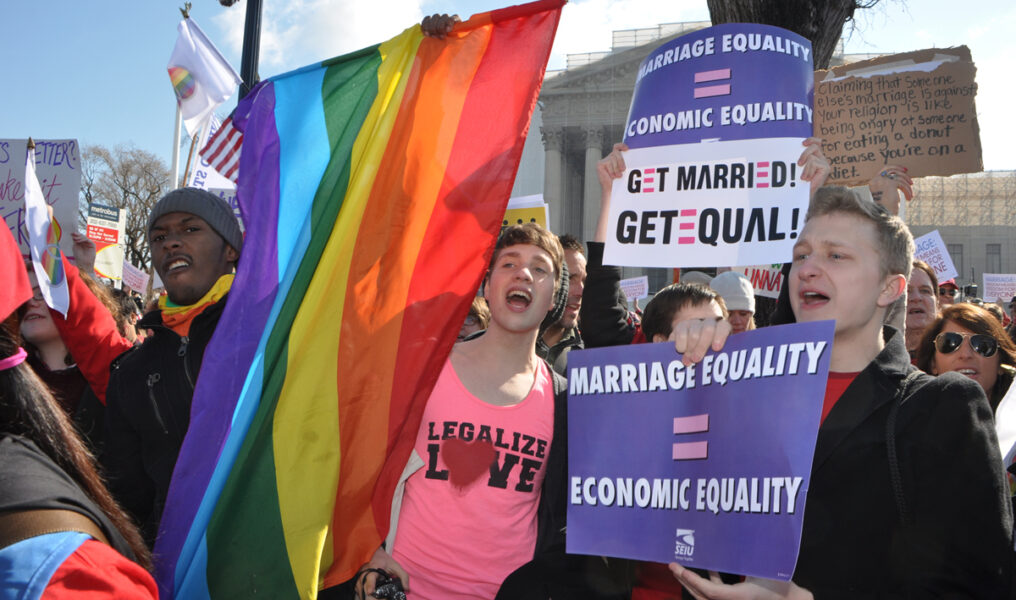Supreme Court OKs Making Video Records of Prop 8 Trial Open to Public
Efforts to unseal tapes has gone on for a decade

By Chris Johnson, Washington Blade
The U.S. Supreme Court announced on Tuesday it has declined to take up a case on video recordings from the 2010 trial against the California’s marriage ban known as Proposition 8, effectively green-lighting the process for making those confidential records open to the public.
Justices signaled on Tuesday they wouldn’t intervene in an orders list that included the litigation, Hollingsworth v. Perry, under a section of cases where certiorari was denied. Although the vote of individual justices isn’t listed, the denial of certiorari means there wasn’t at least three justices who would agree to take up the case when the issue came up in conference.
The battle over the video documentation of the trial has been going from more than a decade. U.S. District Judge Vaughn Walker, who presided over the case and later ruled against the same-sex marriage, is now retired and has since come out as gay himself. With the tapes sealed, gay writer Dustin Lance Black in 2012 wrote and produced a play based on the transcript of the trial, which featured high-profile Hollywood actors such as Brad Pitt, George Clooney and Kevin Bacon.
The U.S. Ninth Circuit Court of Appeals had ruled in November 2021 in favor of opening up the video record of the trial, despite efforts from proponents of the marriage ban to keep the material under wraps. The appellate court issued its decision on the basis of standing, finding proponents in the case failed to show they’d suffer injury if the records were made public or that opening up the tapes would harm the judicial process.Christopher Dusseault, partner at the law firm Gibson, Dunn and Crutcher and attorney for plaintiffs in the case, hailed the Supreme Court’s decision in a statement to the Washington Blade.
“We are thrilled that the Supreme Court has denied the petition by supporters of Proposition 8 to seal the trial video of the successful constitutional challenge to California’s prohibition of same sex marriage, clearing the way for public release of this important historical record.” Dusseault said. “While the trial took place more than twelve years ago, the lessons that it teaches about equality and justice could not be more vital today. At long last, the public will be able to see for themselves how and why an unconstitutional, unjust and unfair ban on marriage equality fell in California.”
This article originally appeared in the Washington Blade and is made available in partnership with the National Gay Media Association.









